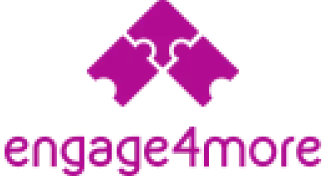What?
Yes, you read that correctly. Wasting time is one of the ways that a company can enhance an employee’s sense of well being and build loyalty in the long run. And wasting time together gives managers a unique opportunity to bond with their subordinates.
Employee engagement is now widely recognized as a critical tool for motivating the workforce and aligning them with the company’s goals. Developing and sustaining an appropriate employee engagement programme has now become an increasingly important part of an HR professional’s job – practically anywhere in the world.
What is less well understood is that there are diverse ways of engaging employees, and some go beyond the traditional rewards and recognition or annual day tamasha (though that’s not to say that those aren’t important). There are a myriad ways of wasting company time and it is in these non-work moments that important personal connections are made – between employees, between people from very different departments, between manager and subordinate, between seniors and juniors.
“Being the Chief Fun Officer, my job is to create a culture of fun for our 1 lakh employees and their families,” says Murali MS of Capgemini, “And that means a company culture that includes their respective interests, that everyone has a share of and everyone wants to be associated with. Putting together a band performance every Monday by employees to a world record around Bollywood Dance Practice, we are always looking at stretching the boundary – all in the areas of employees’ interest”.
Childhood tips for employee engagement
Look back at your childhood when the world was a wondrous place and everything was fresh. Which are the times you really enjoyed with your parents? When they were discussing your homework? Or going to the park? The metaphor is much the same – interaction with the authority figures, with classroom performance being the ‘employment’ of the time. And the park/ movie/ game was the when you relaxed with them. A manager can take a page out of that book.
Or look back at the friends you had. How did you make friends in the first place — was it the common interests that you shared or the common love of the textbook? Does the memory involve the school projects you all had to do, or was it the mischief you got up to together? Think of all the afternoons spent in a friend’s company doing nothing much. That’s when the bonding happens. The timepass moments. Not the classroom, not the homework, not even going up to collect the prize from the principal in front of your peers.
Why just look beyond your closest friends, look at the extended ‘gang’ of yours. How did you get to know them? It was more likely to have been in art class than in maths class. Or perhaps you and a few others were in the school play – the theatre and being on stage is great ice-breaker. And surely many friends were made on the sports field, playing any one of the many games of youth. Then as the digital age dawned, computer gaming took more and more of your gang’s time.
Corporate timepass can pay dividends
The fine art of timepass is something that HR professionals have to develop.
They have to enable employees to waste time.
And they need to encourage the line managers to join in and share time-wasting activities with their teams in a planned manner. This will leads to bonding. It could be just casual chats that extend the lunch hour. It could be the whole team going to a movie after work. In fact, the manager should be encouraged to do so regularly, and his expenses reimbursed by the company.
How to plan year long employee engagement activities?
Shares Nishant Parashar of engage4more – “It is quit a maze to put together an employee engagement calendar and it can be overwhelming for many. After almost decade of working in this field, we have arrived at 5 rings of engagement to arrive at how we can arrive at well balanced plan. It could be anything – music, for instance. Even if not everybody is musically gifted, almost everyone enjoys something as simple as banging a drum. There are dozens of other time-wasting activities, it’s only limited by the imagination, but from the employee’s point of view they can be broadly categorised:
1st – Me – this is the personal area, and is focused on the employee’s hobbies and interests. These become apparent in a talent hunt, where his or her interests become apparent. It could be something like cooking, it could be chess, it could be an interest in fashion. The point is that the employee comes into contact with like-minded people from other departments, with different levels of seniority, and makes a connection.
2nd – My Team – this is the area of team outings, like going out for a drink in the evening or more. Hiking is a staple choice, though adding an element of adventure to the outing is becoming increasingly popular. Or take singing, if there are a few good voices in the team, everybody will join in and have fun.
3rd – My Company – these are time wasting activities in which all the employees participate – annual day celebrations, or the company sports day. Inter-corporate quizzing is also on the rise, and you will be surprised at the number of non-quizzers turning up at the event to cheer on their colleagues. This is a mark of the employee’s allegiance to the company.
4th – My Family – these include things like the annual family day, or ‘bring your kid to work’ or any activity that combines the employee’s family members and the employee’s work environment. In fact, these types of activities have been really beneficial for the BPO industry which traditionally faces rapid attrition – family members got to see the comfortable working conditions and possibilities of a long term career, and that in turn influenced the employee.
5th – My Community – these activities are often close to the heart of young employees (and face it, the Indian workforce is getting younger every year) as they care about causes that were ignored by their elders. Environmental activities are the order of the day – beach clean-ups, recycling drives and various aspects of sustainable living. If the employee energies can be channeled into the company’s CSR programme, so much the better.”
“Our employees are like a family,” says Moonmoon Roy of Mahindra Rural Housing Finance Ltd, “So we frequently ‘celebrate’ family efforts. We often have activities like potlucks, Family Days, Talent Shows, Quiz Competitions, events involving employee’s kids and many more such endeavors. Initiatives like these may seem trivial or encroaching on precious business time, but for us they have proved to be investments in enhancing employee productivity and building a ‘Family of Champions’ ”.
This is how a forward looking HR team can enable employees to waste time for the company’s betterment. It’s actually just another term for employee engagement. And this is how a manager gets to know his team members. Learn about a subordinate’s background, family, hopes and dreams…and sharing that information is the beginning of trust. So when push comes to shove on the work front, these very same employees will go all out for their manager, beyond the call of duty. And the company will prosper.So look at wasting time with people in a new light. And the HR manager needs to practice what he or she preaches – how much timepass have you done with your own subordinates lately?




